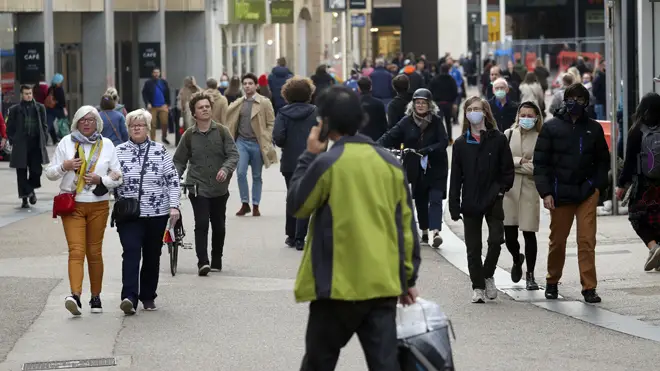
Paul Brand 7am - 10am
20 October 2020, 06:22 | Updated: 20 October 2020, 06:39

The coronavirus pandemic has disproportionately hit the young, the old and those from ethnic minorities, the official human rights watchdog has warned.
The Equality and Human Rights Commission (EHRC) said the virus was in danger of creating a "lost generation" of young people who had seen their career prospects stall and were at high risk of losing their jobs.
Disruption to education meant progress made in recent years in closing the "attainment gap" in primary and secondary schools was likely to be affected by school closures - with differences in home learning and access to technology, the commission said.
Boys, pupils from some ethnic minority groups, those with special educational needs and disability, and those who were socio-economically disadvantaged, were among those who could fall further behind.
At the same time, the EHRC said some ethnic minority groups have been facing a "perfect storm" of being both more likely to die from the virus and more likely to experience financial hardship as a result of the pandemic.
Those from certain ethnic minority groups - including Bangladeshi, black African and Pakistani people - were already closest to the poverty line, a situation that was expected to worsen as Government support schemes come to an end, leading to further hardship.
The commission said the pandemic had also "devastated" the care sector, with care home residents accounting for at least 40% of coronavirus deaths in the UK.
At the same time, lockdown rules have left care home residents isolated from their family and friends, with significant effects on their mental health, while morale among staff was low as they faced an increased risk from the virus, lack of recognition and staff shortages.
Caroline Waters, the EHRC interim chair, said: "In the early days, we said that coronavirus did not discriminate. However, the virus has torn through our lives exposing stark inequalities which show that ultimately, the outcomes it creates, do.
"As we learn to live with coronavirus and look to rebuild our society, we have to strike a difficult balance between making sure that lives are protected, but also protecting the hard-won freedoms that are the hallmark of life in Britain.
"This is just the tip of the iceberg. We are yet to see the effect on access to healthcare for other life-threatening conditions, such as cancer, or what the long term economic effects mean for different protected characteristics, such as women.
"The pandemic has painfully exposed the fragility of the gains that we'd made towards becoming a fairer and more prosperous society.
"As we look towards the future and consider what our 'new normal' may look like, we have to decide what sort of a society we want to become."